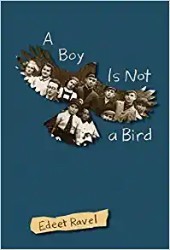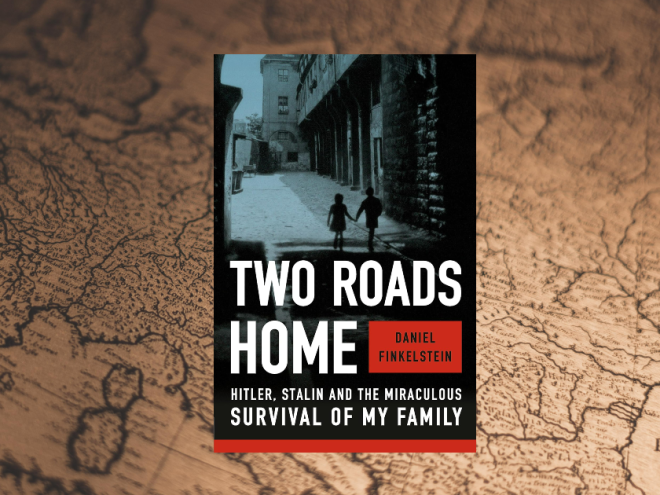Edeet Ravel’s new novel, A Boy Is Not a Ghost, is a sequel to A Boy Is Not a Bird (2019). Both books are based on the childhood experiences of Ravel’s elementary school teacher, Nahum Halpern, whose Jewish family was exiled to Siberia under Stalin’s rule during World War II. With narrative skill and psychological sensitivity, Ravel continues the story of Natt Silver, a child trapped by historical circumstance who feels he has been transformed into a ghost of his true self. Her account of the emotional assaults inflicted on children during wartime is utterly compelling and realistic, and Natt becomes an unforgettable character with all the dimensions of truth.
When the book begins, Natt is twelve years old. His father has been imprisoned in a Soviet gulag because of an invented offense, a victim of the irrational system used to maintain authoritarian control. The rest of the novel involves Natt’s attempt to negotiate this system after he and his mother are also deported to Siberia. While Natt may understand intellectually the parameters of this chaotic system, he is still a child, who has been forced to assume the role of an adult in caring for his mother. Clever and introspective, but also terrified and depressed, Natt is never just a symbol of resilience. Readers will identify with his brave attempts to maintain some equilibrium, accepting help when it is offered and mourning the loss of his previous life. As Nate astutely realizes, “If you don’t remember, you really are a ghost.”
The Soviet dictatorship is a system of lies and contradictions. At the same time that the Russian people are fighting the Nazis, ensuring the ultimate survival of Jewish families like Natt’s, everyone in their totalitarian state is forced to play a role. Natt’s confrontations with antisemitism have prepared him for this dissonance; he pretends that his fellow citizens’ antisemitic insults are just lines recited by actors. Some of the chapters are letters to his friend, Max, in which he eludes reality by describing his circumstances in happy terms. All correspondence is actually a code designed to avoid the censors and inevitably contains ironic tributes to Stalin and the Communist Party. Ravel’s transitions between Natt’s successful use of survival strategies and his internal moments of despair help to develop Natt as a convincing character.
Natt tries to protect himself from forming attachments, since he has suffered through so many separations. Yet he cannot become a ghost, since the core of his identity survives. Love for his parents, and for parent surrogates who try to help him, preserve some normality throughout his struggles. His attachment to a friend, Olga, becomes conflated with an earlier childhood love. Every relationship, even an ordinary crush, is evidence of resistance. Literature and culture, whether American movies, the poetry of Pushkin, or the novel Little Women, are also anchors for a sensitive child under siege. Ravel’s complex portrait of a child’s quest for wholeness in a fragmented world is unforgettable.
This highly recommended story includes an author’s note and a detailed section on the historical background.
Emily Schneider writes about literature, feminism, and culture for Tablet, The Forward, The Horn Book, and other publications, and writes about children’s books on her blog. She has a Ph.D. in Romance Languages and Literatures.





